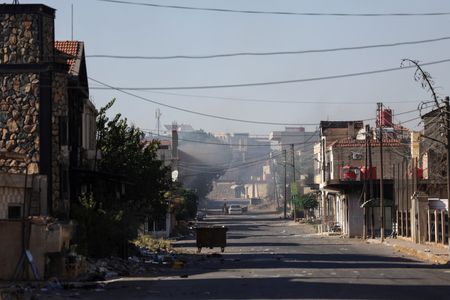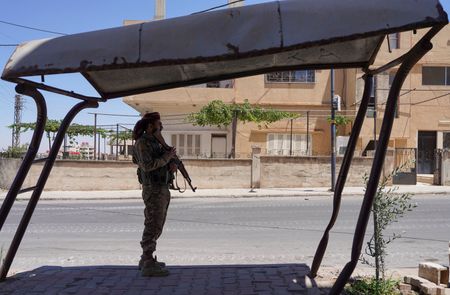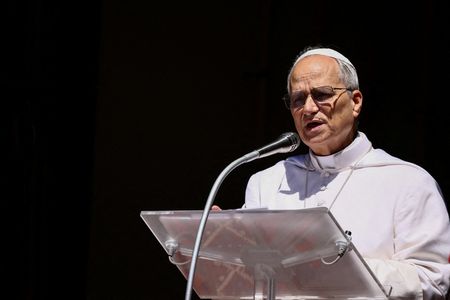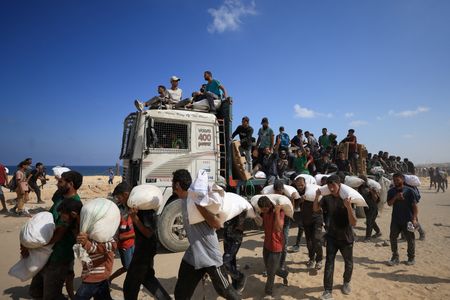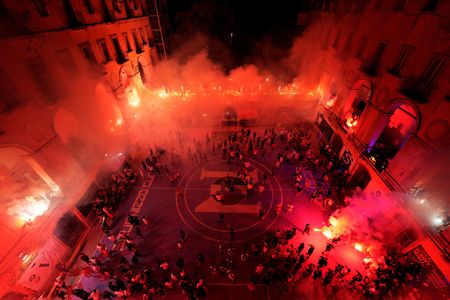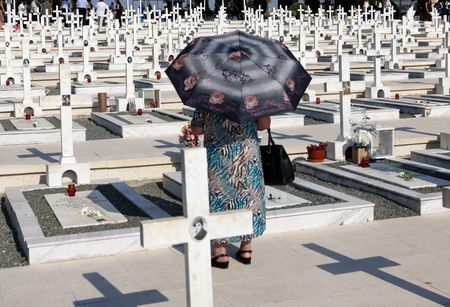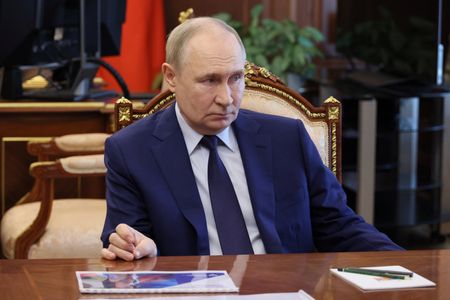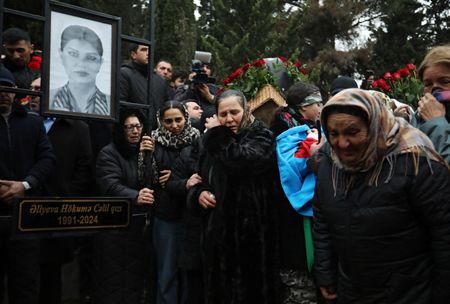DAMASCUS (Reuters) -Residents reported calm in Syria’s Sweida on Sunday after the Islamist-led government announced that Bedouin fighters had withdrawn from the predominantly Druze city and the United States stepped up calls for an end to days of fighting.
With hundreds reported killed, the Sweida bloodshed is a major test for interim President Ahmed al-Sharaa, prompting Israel to launch airstrikes against government forces last week as it declared support for the Druze.
Fighting continued on Saturday despite a ceasefire call.
Interior Minister Anas Khattab said on Sunday that internal security forces had managed to calm the situation and enforce the ceasefire, “paving the way for a prisoner exchange and the gradual return of stability throughout the governorate”.
Reuters images showed interior ministry forces near the city, blocking the road in front of members of tribes congregated there.
The Interior Ministry said late on Saturday that Bedouin fighters had left the city.
Kenan Azzam, a dentist, said there was an uneasy calm but the city’s residents were struggling with a lack of water and electricity.
“The hospitals are a disaster and out of service, and there are still so many dead and wounded,” he said by phone.
Another resident, Raed Khazaal, said aid was urgently needed. “Houses are destroyed … The smell of corpses is spread throughout the national hospital,” he said in a voice message to Reuters from Sweida.
The Syrian state news agency said an aid convoy sent to the city by the government was refused entry while aid organised by the Syrian Red Cresent was let in.
A source familiar with the situation said local factions in Sweida had turned back the government convoy.
The Druze are a small but influential minority present in Syria, Israel and Lebanon who follow a religion that is an offshoot of a branch of Shi’ite Islam.
Some hardline Sunnis deem their beliefs heretical.
The fighting began a week ago with clashes between Bedouin and Druze fighters. Damascus sent troops to quell the fighting, but they were drawn into the violence and accused of widespread violations against the Druze.
Residents of the predominantly Druze city said friends and neighbours were shot at close range in their homes or in the streets by Syrian troops, identified by their fatigues and insignia.
Sharaa on Thursday promised to protect the rights of Druze and to hold to account those who committed violations against “our Druze people”.
He has blamed the violence on “outlaw groups”.
While Sharaa has won U.S. backing since meeting President Donald Trump in May, the violence has underscored the challenge he faces stitching back together a country shattered by 14 years of conflict, and added to pressures on its mosaic of sectarian and ethnic groups.
U.S.
envoy Tom Barrack said “brutal acts by warring factions on the ground undermine the government’s authority and disrupt any semblance of order”.
“All factions must immediately lay down their arms, cease hostilities, and abandon cycles of tribal vengeance.
Syria stands at a critical juncture—peace and dialogue must prevail—and prevail now,” he wrote on X.
COASTAL VIOLENCE
After Israel bombed Syrian government forces in Sweida and hit the defence ministry in Damascus last week, Prime Minister Benjamin Netanyahu said Israel had established a policy demanding the demilitarisation of territory near the border, stretching from the Israeli-occupied Golan Heights to the Druze Mountain, east of Sweida.
He said Israel would protect the Druze.
The United States however said it did not support the Israeli strikes. On Friday, an Israeli official said Israel agreed to allow Syrian forces limited access to the Sweida area for two days.
A Syrian security source told Reuters that internal security forces had taken up positions near Sweida, establishing checkpoints in western and eastern parts of the province where retreating tribal fighters had gathered.
On Sunday, Sharaa received the report of an inquiry into violence in Syria’s coastal region in March, where Reuters reported in June that Syrian forces killed 1,500 members of the Alawite minority following attacks on security forces.
The presidency said it would review the inquiry’s conclusions and ensure steps to “bring about justice” and prevent the recurrence of “such violations”.
It called on the inquiry to hold a news conference on its findings – if appropriate – as soon as possible.
The Syrian Network for Human Rights said on July 18 it had documented the deaths of at least 321 people in Sweida province since July 13.
The preliminary toll included civilians women, children, Bedouin fighters, members of local groups and members of the security forces, it said, and the dead included people killed in field executions by both sides.
The Syrian Observatory for Human Rights, another monitoring group, has reported a death toll of at least 940 people.
Reuters could not independently verify the tolls.
(Reporting by Khalil Ashawi in Damascus, Maya Gebeily in Beirut, Suleiman al-Khalidi, Firas Makdesi and Kinda Makieh in Damascus, Jaidaa Taha and Muhammad Al Gebaly in Cairo; Writing by Tom Perry; Editing by Aidan Lewis and Giles Elgood)

